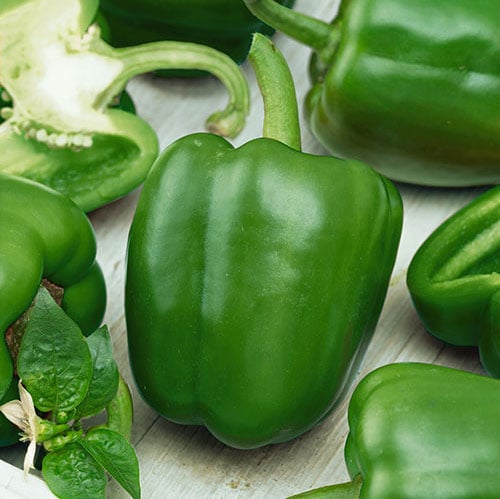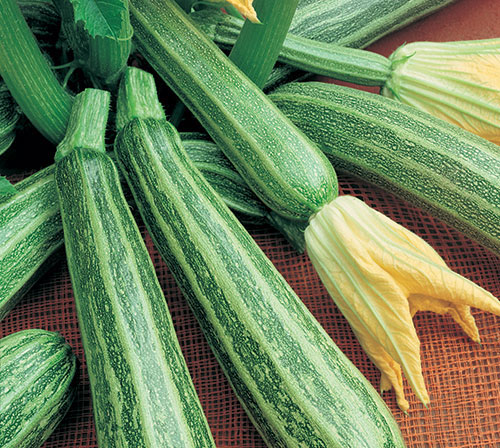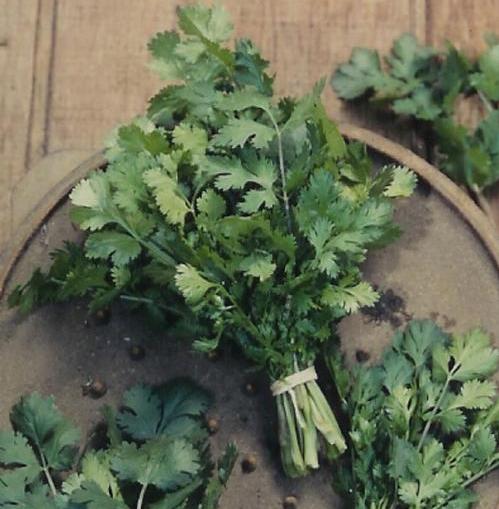Learning Download: Benefits of Organic Gardening
Benefits of organic gardening
It seems everyone has taken to the topic of growing organically. People are more health conscious than ever, and they seek out organically grown produce when shopping. Gardeners are beginning to realize the importance of growing organically as well, and so more and more local, organic farms are popping up.
What does it mean to be organic?
Foods that are USDA-certified organic are foods that are grown and processed according to the federal guidelines. Produce is considered organic if it has been grown on soil with no prohibited materials or substances applied for at least three years before the organic harvest. For example, prohibited substances can include synthetic fertilizers and pesticides. Some synthetic substances are allowed in organic gardening, but they must be on the approved list.
Why should someone grow organically?
The main reason for growing organically is gardeners will know exactly what has gone into growing their vegetables. If they grow organically and don’t use pesticides or synthetic fertilizer, they know their vegetables are safe to eat. However, there are many other benefits to growing organically.
For example, growing organically creates an overall healthier soil. If you consistently treat soil with chemicals, it may make the soil unhealthy and degrade it to a point of not being able to thrive on its own. Organic farming also leads to less soil erosion, and a study found that organic gardeners had 8 more inches of topsoil than non-organic gardeners.

Sometimes, pesticides may treat the pests harming your garden, but the chemicals also can hurt the good bugs as well. Organic gardening is much better on the environment and the animals and bugs within it than synthetic pesticides. By gardening organically, gardeners are helping to preserve the animals' environment and live safely. In addition, if gardeners also farm and have any farm animals, those animals won't be exposed to harmful chemicals.
When it comes to eating organic food, many claim that organic tastes better than non-organic. An independent study also discovered that organically grown foods had high nutritional content than their non-organically grown counterparts. For example, organically grown food contained 27 percent more Vitamin C, 29 percent more magnesium, 21 percent more iron and 14 percent more phosphorous.
Ways to garden organically:
If a gardener is used to using synthetic fertilizers and pesticides, there are some beginning steps to take to get started on a healthier, more organic lifestyle. For example, till the garden and use mulch, composted manure, food or leaf remains to supplement your soil. This also allows gardeners to begin exploring different ways of composting and eliminating food waste by using it to organically fertilize their gardens. As for natural ways to reduce pests, look into row covers or utilize companion planting, as some plants will naturally repel pests when planted near others.
Learning Download: How to Grow Organic Vegetables
How to grow organic vegetables
With the mass population of consuming organic items spreading across America, it’s important to know what the term organic means and how to grow organic vegetables in your garden. Not only does organic produce sell more, but it also is more environmentally friendly to the earth and potentially healthier to consume.
What does organic mean?
Organic consumption has been a hot topic lately, but eating something with the word “organic” in it doesn’t make the item healthier in terms of caloric content. Instead, organic means items within the product must be certified organic, meaning items like pesticides, chemical fertilizers or dyes are not used to grow the items. However, the remaining 5 percent can be processed but only with additives from an approved list. And although there is no extra mineral or vitamin content to organic vegetables, being organic means harsh chemicals aren’t being used. In other growth methods, those chemicals could potentially harm the earth or even our bodies. Some sweat that organic foods taste better than non-organic foods, but others say that’s up to the taster.
How do I grow organic vegetables in my garden?
The first step to starting an organic garden is testing the soil. Harmful build-up may be present, and since you won’t be able to feed your vegetables with fertilizer, you want to make sure the soil will provide the vegetables with the nutrients they need. Once this is complete, beginning an organic bed is the same process as beginning any other bed. You want to place the vegetable garden in full sunlight, on flat land and ensure there are no terrain issues like rocky soil in the way of your future vegetables’ roots. Once that’s take care of, ensure your garden is close to a good compost source because, since you won’t be using the majority of fertilizers or chemicals, you will want good compost to better the growth of your vegetables
When planting, group your plants tightly and don’t walk on the soil where the plants are growing. Raised beds do a good job at this. Grouping the plants ensures weeds don’t take over, but be sure to leave plenty of space between the rows of plants so fungal diseases don’t take hold if there’s poor air circulation.

Which plants to choose for organic growth:
There are certain types of vegetables that are better to grow in an organic setting than others. One example is indeterminate tomatoes because the vines will continue to grow larger and produce fruit until the first frost. Another example is non-hybrid pole beans which also continue to grow and produce until frost as long as the gardener continues to pick the beans. Zucchini, swiss chard and peas are also great options because their harvest is always abundant. These plants don’t take fertilizer to produce a healthy bounty of veggies for harvest.
You can find our wide variety of organic vegetables seeds at Urban Farmer
Learning Download: How to Grow Organic Herbs
How to grow organic herbs
Herbs may be the easiest way to grow organically for several reasons. One, herbs are easy to grow in general and don’t require too much fertilizer or too many chemicals and pesticides to produce a very bountiful harvest. Also, it is easy to grow organic herbs in a pot and even grow them inside, which will help deter potential pests from consuming the leaves. Also, herbs can be used medicinally, and part of organic growth is ensuring that food is not only not harming the body but also treating the environment well and not causing any harm like water pollution, soil pollution and run-off. One major plus to growing organic herbs over other organic vegetables is herbs are so easy to grow in pots. When choosing your soil for the pot, you can look for organic options and amend it with your own homemade compost instead of needing to test the soil in your garden to see if it has the nutrients to support organic herbs.
When it comes to herb growth, herbs don’t typically require fertilizer to grow a large harvest anyway. The most herbs need to do well indoors or outdoors is direct sunlight for more than six hours a day and plenty of water.
Also, another plus to growing herbs organically is many times, pests steer clean of strong-smelling herbs like cilantro. These make for excellent companion plantings near other organic vegetables to act as a natural pesticide in some occurrences.

Herbs are probably the best place to start when diving into organic gardening since they don't require much of any chemicals traditionally anyway. To get a taste on how to garden organically, see how it positively affects the environment and still receive a bountiful harvest, begin your organic gardening journey with herbs. Specifically, herbs like cilantro, basil and mint are bound to grow quicker than you can harvest the leaves.
Check out our wide selection of organic herb seeds at Urban Farmer.
